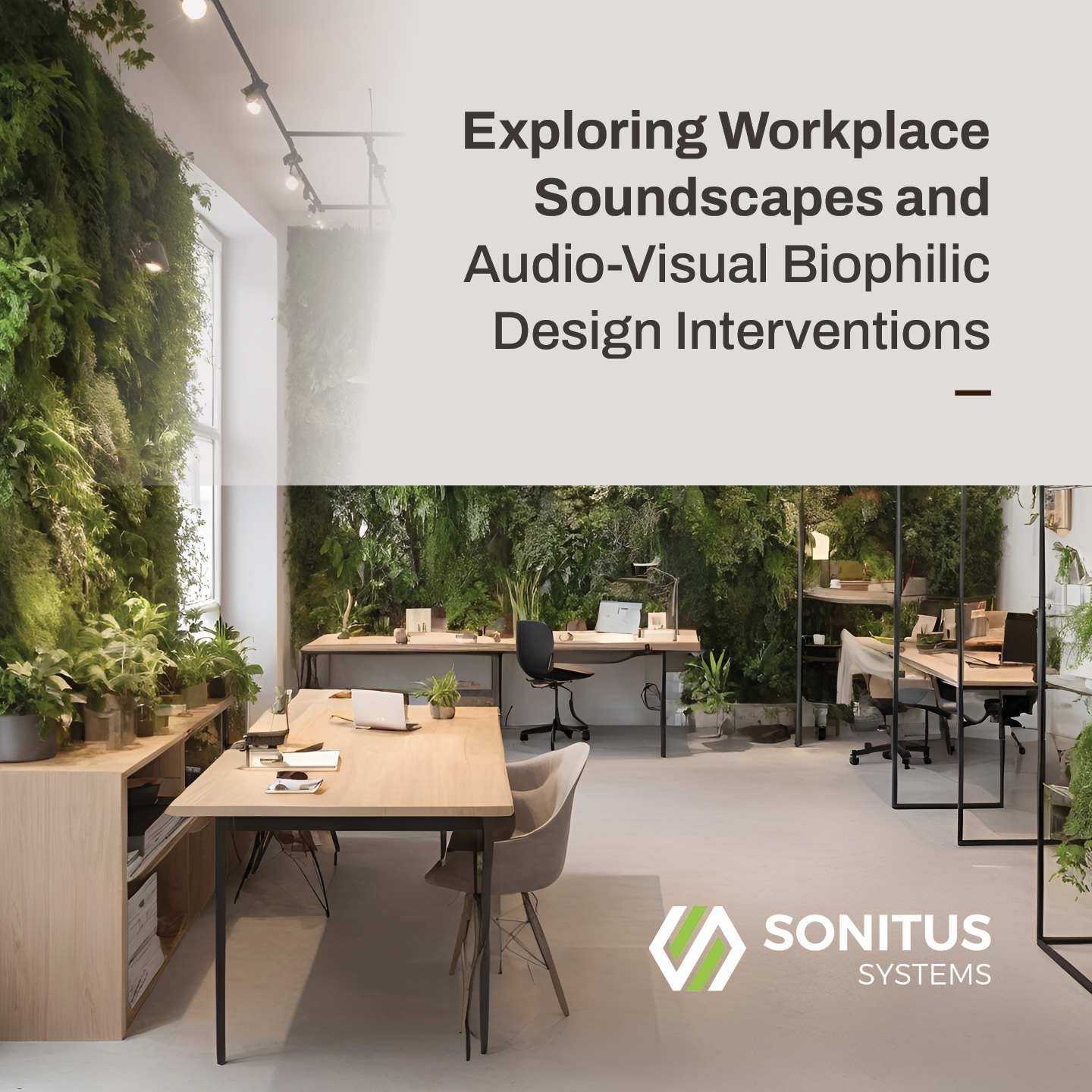Enhancing Workplace Soundscapes with Indoor Sound Sensors
In modern office environments, noise and poor acoustics are persistent challenges that can significantly affect employee productivity and well-being. As an expert in acoustics and a manufacturer of advanced indoor sound sensors, we recognise the importance of creating optimal workplace soundscapes. Recent studies, such as the one by Latini et al. (2024 https://www.sciencedirect.com/science/article/pii/S2352710224005151), have shed light on innovative approaches to improve office acoustics, particularly through the integration of biophilic design and advanced sound monitoring technologies.
The Impact of Workplace Soundscapes
Workplace soundscapes encompass all the auditory elements within an office environment. These elements can range from the hum of HVAC systems and office equipment to conversations and external noise like traffic. As previously documented on this website, poorly managed soundscapes can lead to a variety of negative outcomes, including:
- Decreased Productivity: Disruptive noise can lead to cognitive overload, reducing employees’ ability to focus and complete tasks efficiently.
- Increased Stress Levels: Continuous exposure to unwanted noise can heighten stress and anxiety, impacting overall mental health.
- Reduced Job Satisfaction: A noisy environment can diminish job satisfaction and overall morale, potentially leading to higher turnover rates.
Integrating Biophilic Design with Acoustics
Biophilic design, which incorporates elements of nature into built environments, has been shown to improve both psychological and physiological responses among office workers. The above mentioned academic research explored the benefits of combining virtual reality (VR) technology with biophilic design to create immersive, nature-connected office environments. That study demonstrated that audio-visual connections with nature can significantly enhance the perceived quality of office soundscapes and reduce stress indicators such as Electro-Dermal Activity (EDA) and Pulse Rate (PR).
Role of Advanced Indoor Sound Sensors
To effectively manage and enhance workplace soundscapes, the deployment of advanced indoor sound sensors like the AS180 Sonisens is crucial – full product specification can be found at https://www.sonitussystems.com/products/as180-sonisens. These sensors provide real-time data on various acoustic parameters, enabling precise monitoring and control. Key features of these sensors include:
- Noise Level Monitoring: Continuous measurement of sound pressure levels to identify and mitigate sources of disruptive noise.
- Frequency Analysis: Detailed analysis of the frequency spectrum to distinguish between different types of noise (e.g., speech, mechanical noise, traffic).
- Environmental Adaptation: Sensors can be integrated with building management systems to automatically adjust environmental controls (e.g., HVAC, sound masking systems) based on real-time acoustic data.
Practical Applications
- Open-Plan Offices: In open-plan offices, where noise is a common complaint, sound sensors can help in designing strategic noise mitigation solutions. For instance, identifying peak noise periods and sources can inform the placement of sound-absorbing materials and the scheduling of quiet hours.
- Biophilic Enhancements: Integrating sound sensors with biophilic design elements, such as indoor green walls and natural soundscapes, can create a more pleasant and stimulating environment. The sensors can ensure that the natural sounds are at optimal levels, providing a consistent and soothing auditory backdrop.
- Personalised Soundscapes: In workspaces where individual preferences vary, sound sensors can facilitate personalised soundscapes. Employees can adjust their immediate acoustic environment using mobile apps linked to the sensors, enhancing their comfort and productivity.
As long-time environmental innovators working to advance indoor sound sensors, it is interesting for us to learn more about how integrating biophilic design principles can enhance the acoustic performance of a workplace and its soundscape. By leveraging real-time acoustic data and the benefits of nature-inspired environments, companies can create offices that enhance employee wellbeing, while boosting productivity.
Sonitus Systems offers both the hardware and software for a range of environmental parameters on a continual basis, with real-time information available through our Sonitus Cloud dashboard. For more details on our indoor and outdoor noise and air quality monitoring products and services, please contact the team at https://www.sonitussystems.com/contact-us
